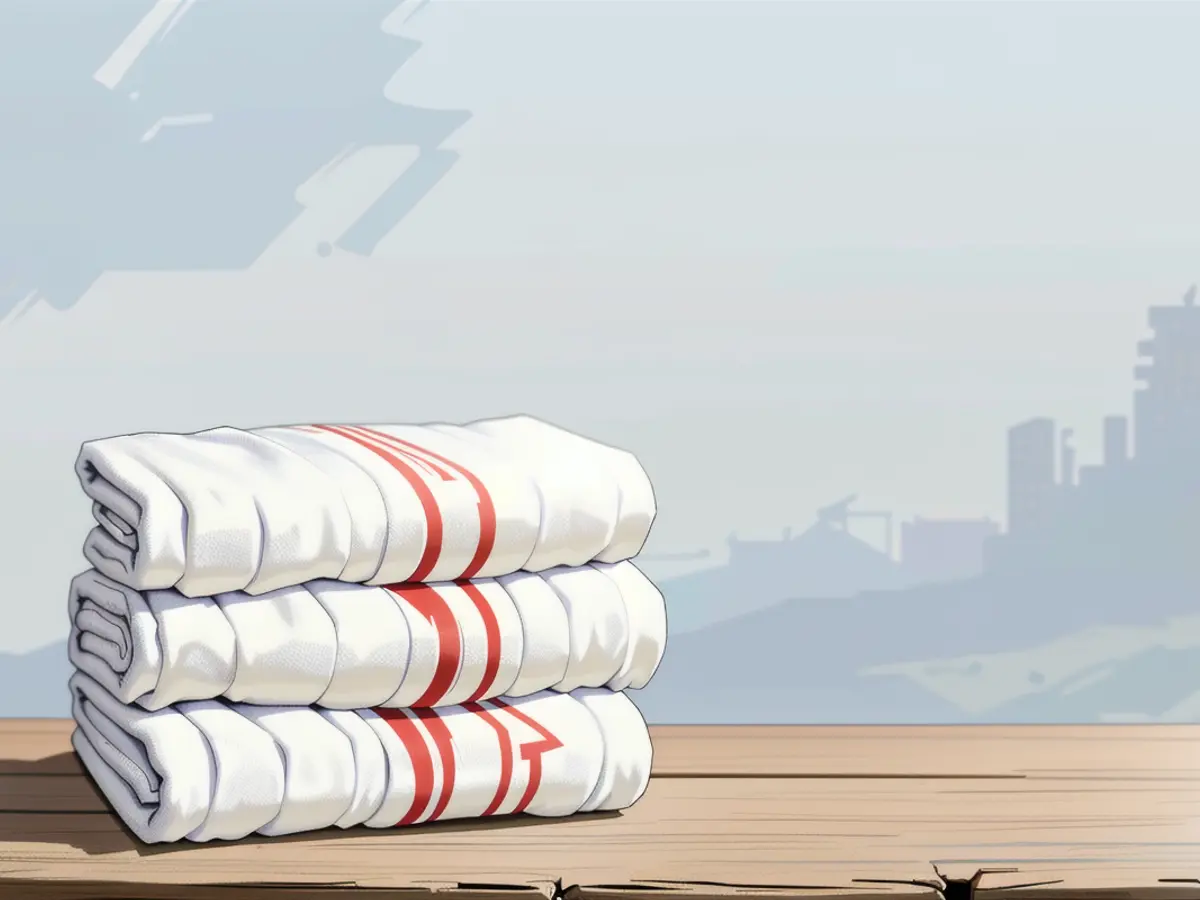Is It Necessary to Launder Towels Alongside Clothes and Other Textiles?
Sometimes, during your regular home maintenance, opting for the easy route isn't always the wisest choice. For instance, washing all of your towels alongside your regular laundry can lead to more harm than you might suspect.
We sought the insight of two cleaning professionals to shed light on why it's crucial to wash your towels separately, share their tips for washing towels effectively, and highlight what to avoid.
Meet The Experts
- Taylor Matths is the proprietor of Sparkling Queens in Savannah, Georgia.
- *Stephanie Booth*is a home cleaning and organization influencer situated just outside of Atlanta, Georgia.
Should Towels Be Washed Separately?
It is imperative to wash towels separately from clothing and other linens, asserts Matths. Despite the fact that towels do not fit into a one-size-fits-all usage category – there are kitchen towels, bath towels, and cleaning towels.
“For one, your other clothes and sheets will gather lint and fibers from being washed with towels,” she explains. “Towels should be washed on a heavier cycle, without fabric softener, in hot water."
How Can Towels Damage Clothes?
“Towels are a heavier fabric, and when washed with lightweight, more delicate fabrics, the heaviness of the towels can pull on or twist around those fabrics, tearing or stretching them out of shape,” explains Booth.
Additionally, Matths adds, towels take longer to dry than clothing. If dried together, the extended drying cycle “could cause clothing and other items to shrink.”
Can Towels Be Washed With Bedding?
It is not advisable to wash your towels with your bedding because towels can get quite dirty. “You don’t want to wash towels that have been used to clean up food, pets, or other dirty job messes with your clothing or bed linens,” explains Booth. “You run the risk of transferring bacteria or stains onto your other wash items.”
Four Tips For Washing Towels
Wash Towels Before Use
Always make sure to wash towels before using them, possibly even a couple of times. This will eradicate any germs they may have picked up while sitting on a store shelf. It will also ensure they are absorbent – manufacturers often coat the towels with finishes that make them feel softer but reduce their water-absorption capacity.
Consider The Purpose

Wash towels that serve the same purpose together. For example, only wash kitchen towels with kitchen towels, cleaning towels with cleaning towels, and bath towels with bath towels. This reduces the potential for germ cross-contamination. It will also help keep the fibers of towels with different weights and fabrics from deteriorating.
Keep Colors Separate From Lights
Separate light colors from dark to prevent color transfer. “Wash white or very light fabrics in hot water, and mid-tone, bright, and dark colors in warm water,” suggests Booth.
Try Adding Other Cleaners To The Mix
“A small amount of white vinegar added to a hot wash cycle can help enhance color brightness, reduce musty smells, and remove excess buildup,” Matths says. Adds Booth, “If you have hard water, add 1/2 cup of baking soda directly to the drum to soften the water and help the detergent work better.”
Mistakes To Avoid
Skip Large Loads
Ensure you do not overfill the washing machine. Booth advises filling the drum no more than half full because of how heavy towels become once they’re wet. “Residential washing machines are not built to withstand heavy loads like commercial machines,” she explains.
An overloaded machine will become unbalanced, and nothing will properly be cleaned. Seams could unravel and wear out faster, there could not be enough room for fabrics to be thoroughly washed, and your machine may not be able to fully spin out all the moisture, causing it to work harder.
In addition to understanding the capacity of your machine, you should also be cautious to not use too much detergent, Matths adds. “Using too much detergent will not get your towels cleaner and will only leave buildup.”
Don't Overload The Dryer Either
Just like your washing machine, you don’t want to overload your dryer. The towels need space for airflow and to tumble. The more towels in the dryer at one time, the more likely they’ll come out damp. To help the process, clean out your dryer’s lint trap and add three dryer balls to the machine to fluff the towels, reducing drying time and static.
Avoid Fabric Softeners
Booth strongly recommends avoiding traditional fabric softeners. “They contain fiber-lubricating silicones, which makes everything it comes into contact with basically waterproof and more flammable, even after going through your washing machine rinse cycle,” she says. “If you have a hard time breaking up with your favorite fabric softener, avoid using it on kitchen towels and microfiber towels.”
Based on the text, here are two sentences that contain the given words:
- Taylor Matths, the proprietor of Sparkling Queens in Savannah, Georgia, recommends washing towels separately from clothing and other linens, preferably on a heavier cycle using hot water.
- According to Stephanie Booth, a home cleaning and organization influencer based just outside of Atlanta, Georgia, washing towels alongside bedding can transfer bacteria or stains onto your other wash items.






